Today Current Affairs: 15th September 2022 for UPSC IAS exams, State PSC exams, SSC CGL, State SSC, RRB, Railways, Banking Exam & IBPS, etc
Table of Contents
JIMEX 22:

The sixth edition of Japan India Maritime Exercise 2022 (JIMEX 22) hosted by Indian Navy commenced in the Bay of Bengal on 11 September 2022.
- The Japan Maritime Self Defence Force (JMSDF) ships are being led by R Adm Hirata Toshiyuki, Commander Escort Flotilla Four, and Indian Naval ships by R Adm Sanjay Bhalla, Flag Officer Commanding Eastern Fleet.
- JIMEX 22 involves two Phases; exercises at sea and a harbour phase at Visakhapatnam.
- This edition marks the 10th anniversary of JIMEX, which began in Japan in 2012.
- It also coincides with the 70th anniversary of establishing of diplomatic relations between India and Japan.
- JIMEX 22 seeks to consolidate the high degree of interoperability that exists between maritime forces of the two countries, through complex exercises in the surface, sub-surface and air domains.
National Lists Of Essential Medicines (NLEM) 2022:
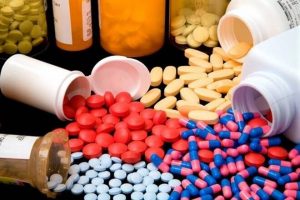
Union Minister for Health and Family Welfare, Dr Mansukh Mandaviya, launched National Lists of Essential Medicines (NLEM) 2022.
- 384 drugs have been included in this list with addition of 34 drugs, while 26 from the previous list have been dropped.
- The medicines have been categorized into 27 therapeutic categories.
- The following criteria are followed for inclusion in NLEM:
- be useful in diseases which is a public health problem in India
- be licensed/ approved Drugs Controller General (India) (DCGI)
- have proven efficacy and safety profile based on scientific evidence
- be comparatively cost effective
- be aligned with the current treatment guidelines
- recommended under National Health Programs of India. (e.g. Ivermectin part of Accelerated Plan for Elimination of Lymphatic Filariasis 2018).
- when more than one medicine are available from the same therapeutic class, one prototype/ medically best suited medicine of that class to be included.
- price of total treatment is considered and not the unit price of a medicine
- fixed dose combinations are usually not included
- vaccines as and when are included in Universal Immunization Program (e.g. Rotavirus vaccine).
Hindi Diwas:
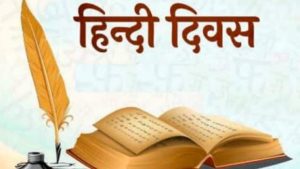
Hindi Diwas is being celebrated across the country on September 14.
- On the occasion of Hindi Diwas, Prime Minister of India has said that the Hindi language has brought India special honour globally and its simplicity and sensitivity always attracts people.
- Hindi Diwas or the National Hindi Day is celebrated every year in India on September 14 to mark the day of adoption of Hindi as the official language by the Constituent Assembly of India in 1949.
- The decision of using Hindi as an official language of India was legalised by the Constitution of India on January 26, 1950.
- India’s first prime minister Jawaharlal Nehru decided to celebrate Hindi Diwas on this day.
- Hindi is also an eighth schedule language.
- Hindi is not a classical language.
- Article 351 pertains to the ‘Directive for development of the Hindi language’.
- Hindi is the fourth most spoken language in the world, and is written in Devanagari script.
- The language got its name from the Persian word ‘Hind’ – meaning ‘land of the Indus River’, and is a descendant of Sanskrit.
Arattupuzha Velayudha Panicker:
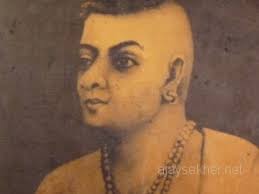
The recently-released Malayalam film Pathonpatham Noottandu (‘Nineteenth Century’), directed by Vinayan, has earned both critical acclaim and audience approval.
- It is based on the life of Arattupuzha Velayudha Panicker, a social reformer from the Ezhava community in Kerala who lived in the 19th century.
- Born into a well-off family of merchants in Kerala’s Alappuzha district, Panicker was one of the most influential figures in the reformation movement in the state.
- He challenged the domination of upper castes or ‘Savarnas’ and brought about changes in the lives of both men and women.
- The social reform movement in Kerala in the 19th century led to the large-scale subversion of the existing caste hierarchy and social order in the state.
- Panicker is credited with building two temples dedicated to the Hindu god Shiva, in which members of all castes and religions were allowed entry.
- In 1858, he led the Achippudava Samaram strike at Kayamkulam in Alappuzha.
- This strike aimed to earn women belonging to oppressed groups the right to wear a lower garment that extended beyond the knees.
- In 1859, this was extended into the Ethappu Samaram, the struggle for the right to wear an upper body cloth by women belonging to backward castes.
CRISPR:
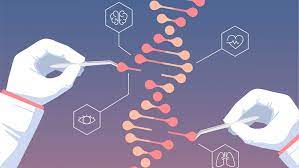
Over the last 3 years, the gene-editing technology with near unlimited potential has produced flawless results in clinical trials.
- India has approved a 5-year project to develop CRISPR to cure sickle cell anaemia.
- CRISPR is short for Clustered Regularly Interspaced Short Palindromic Repeats, which is a reference to the clustered and repetitive sequences of DNA found in bacteria, whose natural mechanism to fight some viral diseases is replicated in this gene-editing tool.
- Its mechanism is often compared to the ‘cut-copy-paste’, or ‘find-replace’ functionalities in common computer programmes.
- A bad stretch in the DNA sequence, which is the cause of disease or disorder, is located, cut, and removed and then replaced with a ‘correct’ sequence.
- And the tools used to achieve this are not mechanical, but biochemical specific protein and RNA molecules.
- The technology replicates a natural defence mechanism in some bacteria that uses a similar method to protect itself from virus attacks.
One Water Approach:
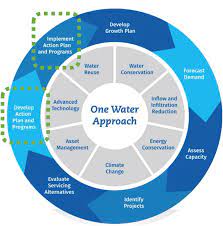
The United Nations has estimated that by the year 2050, four billion people will be seriously affected by water shortages, pushing the One Water approach towards all sources of water.
- One Water Approach, also referred to as Integrated Water Resources Management (IWRM), is the recognition that all water has value, regardless of its source.
- It includes managing that source in an integrated, inclusive and sustainable manner by including the community, business leaders, industries, farmers, conservationists, policymakers, academics and others for ecological and economic benefits.
- It is an “integrated planning and implementation approach to managing finite water resources for long-term resilience and reliability meeting both community and ecosystem needs.
- One Water is the future of the water industry when the barriers conventionally separating wastewater, stormwater, drinking water, groundwater and the reuse and re-utilisation are broken down, many benefits realised.
NCRB Releases Prison Statistics In India Report, 2021:
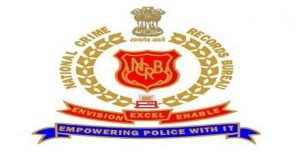
Key findings of the report:
- Overcrowded Prisons: over 130% occupancy
- Undertrials: 77%
- SC/ST/OBC: over 67% of inmates belong to these communities.
- Highest number of undertrials: Uttar Pradesh> Bihar> MH
- Transgender: Most prisons don’t have separate facilities including in Delhi
Quantum Network:

IIT, Madras has become 1st institute in India to join IBM Quantum Network.
- IBM’s Quantum Network aims to advance quantum computing skills and research in India.
- Quantum computing is a rapidly-emerging technology that harnesses the laws of quantum mechanics to solve problems too complex for classical computers.
- Quantum networks form an important element of quantum computing and quantum communication systems.
- Quantum networks facilitate the transmission of information in the form of quantum bits, also called qubits, between physically separated quantum processors.
- A quantum processor is a small quantum computer being able to perform quantum logic gates on a certain number of qubits.
- Quantum networks work in a similar way to classical networks.
- The main difference is that quantum networking, like quantum computing, is better at solving certain problems, such as modeling quantum systems.
Windfall Tax:

Government has defended the windfall tax (applicable from July 1), as a way to rein in the “phenomenal profits” made by some oil refiners who chose to export fuel to reap the benefits of skyrocketing global prices while affecting domestic supplies.
Windfall tax:
- The United States Congressional Research Service (CRS) defines a windfall as an “unearned, unanticipated gain in income through no additional effort or expense”.
- Domestic producers sell crude oil to domestic refineries at international parity prices, thus making windfall gains.
- E. g. ONGC reported bumper profits in the March quarter (when international prices soared to a near 14-year high of $139 per barrel).
- The U.N. chief urged all governments to tax these excessive profits “and use the funds to support the most vulnerable people through these difficult times.”
- Besides India, the United Kingdom, Italy, and Germany have either already imposed a windfall profit tax or are contemplating doing so.




